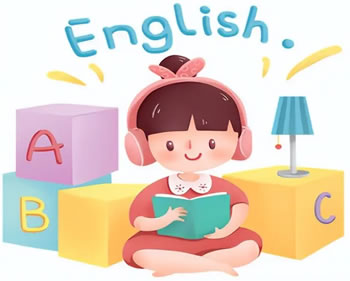
【摘要】鲁迅在《呐喊》的自序中说道,他当时做小说不过是“呐喊几声,聊以慰藉那在寂寞里奔驰的猛士,使他不惮于前驱”,而自己“也并不愿将自以为苦的寂寞,再来传染给也如我那年青时候似的正做着好梦的青年”。以下是作文地带为大家精心整理的内容,欢迎大家阅读。
1.鲁迅《故乡》英语读后感
In the past, I always used the excuses of "too deep" and "difficult to understand" not to read the works of Lu Xun and other literary masters, and never thought of reading them. When we learned the lesson "young leap land", we read Lu Xun's original novel "Hometown" once. This makes me feel deeply. If it's just "young Runtu", I'm afraid we can only understand that Lu Xun and his partners are not as knowledgeable as Runtu. However, after listening to the full text of "Hometown", we can also understand what Lu Xun wants to express. Runtu deserves to be a key figure.After 20 years of transformation, he changed from a brave, witty and knowledgeable little boy to a vulgar and servile servant. What made him change so much? Is it poverty? Or... We don't know. But from Lu Xun's novels, we can know that in Lu Xun's heart, Runtu has always been a brave, intelligent and lively person, otherwise he would not think of his stabbing scene when he mentioned Runtu. However, when Runtu spoke to Lu Xun, the first word was "master". I believe Lu Xun's inner shock must have been great at that time. He might have thought of thousands of ways of conversation, but he certainly didn't expect this. According to the standards of feudal society, Runtu should be called Master Lu Xun. However, is the span from brother Xun 20 years ago to the master 20 years later too large? The change of leap soil is obvious. Years have left traces of vicissitudes on his face and hands.
However, the change of appearance is not his change, his change is a psychological change. Perhaps, he still regarded Lu Xun as a fast brother in his heart, but the society at that time did not allow it; Perhaps, he still wanted to play with Lu Xun, but he knew that there was a master servant relationship between him and Lu Xun. How much emotion does a "master" contain? Is it cowardice? Is it cowardice? Or because I haven't seen strangers for a long time? This, perhaps only leap soil knows. I don't know if friends who have seen hometown have noticed it. Although sister-in-law Yang is a supporting role, she is also one of the characters who has changed a lot. 20 years ago, she once had the reputation of tofu beauty, but 20 years later, Lu Xun couldn't recognize her. For her appearance, Lu Xun found only one adjective - "compass".
If it's just a change in appearance, it's even better. It's also because her heart is gradually changing that sister-in-law Yang has become this "ugly look". When she went to Lu Xun's house, she actually asked for some old furniture. After he refused, she talked nonsense, saying that "the richer, the more unwilling to relax, and the richer if she refuses to relax". Such a sharp sentence is hardly what a "Xi Shi" can say, but like a middle-aged woman mixed with vegetable flavor and sharp words. Not only that, when Mrs. Yang left, she also took a pair of gloves from Lu Xun's mother. Such a variety, this person's change is also huge.
In hometown, Lu Xun not only points to the change of his hometown, which gives people a sense of melancholy, but also uses two representative examples of Runtu and sister-in-law yang to prove a word - change. Whether it is the change of hometown or the change of characters, Lu Xun's articles always give people a sense of meaning, especially the last sentence: there is no road in the world. If people go more, there is a road. It is even more memorable.
2.鲁迅《故乡》英语读后感
Lu Xun, a great Chinese writer, thinker and revolutionist, was originally named Zhou Shuren and came from Shaoxing, Zhejiang Province. He was born in a feudal family. He studied medicine in Sendai Medical College and later engaged in literary and artistic work in an attempt to change the national spirit. He participated in the activities of the revolutionary party from 1905 to 1970. During that time, he was ordered by his mother to return home and get married. His wife Zhu an, from 1918 to 1926, He has successively created and published a collection of novels "shout", "hesitation" and a collection of papers "grave". The novella "true story of Ah Q" published in 1921 has become an immortal masterpiece of modern Chinese literature.Shouting is Mr. Lu Xun's second classic novel collection since the madman's diary. It is a Chinese masterpiece and a world masterpiece. Some articles in this book are very familiar to us, such as hometown, medicine, Kong Yiji and other Lu Xun's masterpieces.
After reading the tofu Xishi who saw what people said in hometown, and the little hero Runtu who played with the protagonist to the big watermelon and the silver collar on the ground when he saw the master, he looked happy and sad, which reflected the numbness of the people at that time under the oppression and attack of feudal forces. Of course, there are many articles like this in the book cry, Lu Xun wrote these articles so that the Chinese people at that time could wake up after reading them, encourage the Chinese people who were half asleep, explain the darkness of the society at that time in the language of criticism and criticism, and eagerly hope that the sleeping Chinese people would wake up as soon as possible and rebuild our Chinese majesty!
As a teacher, I should learn from him that he works meticulously. Every word and sentence of him always enlightens me that the world has profound truth, rich knowledge and noble morality. Under such favorable conditions, I should seize the opportunity, constantly learn and summarize, humbly ask my colleagues for advice, start bit by bit, overcome all difficulties, dare to face all challenges and start the beam as soon as possible. Our school is a relatively poor source of students. Maybe a lot of work can not get the understanding or support of parents, maybe we pay a lot of efforts but can not get the due return, which makes us more or less discouraged and slowly weakens our enthusiasm for our career. But after reading this book, in addition to being moved, it makes me clearly realize that if you really love your career and devote yourself to education, you will find that your efforts are successful. When you really love a student, no matter how bad the student is, you will find the bright spots on him and inspire him; No matter how naughty a student is, you will find his loveliness; In difficult students, you will try your best to get close to him and help him.
3.鲁迅《故乡》英语读后感
Recently, after work, I read Lu Xun's prose collection and carefully studied his famous article hometown. After reading, I feel warm in my heart, but also have a deeper experience and understanding of the road of struggle in life. Mr. Lu Xun's "Hope" does not matter. This is like a road on the earth; In fact, there is no road on the ground. When more people go, it will become a road. "The famous saying still makes people think and daydream. With the increase of life experience, today, the "road" I understand may be more complex than the "road" in Lu Xun's hometown.Road, there is really no road on the ground, which can be explored only by stepping through the bumps and difficulties under people's feet. In my opinion, the road is a sign of goal achievement. Wherever there is a road, there is always a goal in front of it. In fact, the road is connected with people's desire and pursuit.
Road is the extension of desire and the realization of desire. It exists in people's thoughts. The setting and construction of roads in any area on the earth are formed in people's mind through the interaction between desire and goal, cognition and reality. Road is useful. Its role is to carry people to learn to walk and achieve the goal of accessibility.
The road has been testing our hearts. When we learn to walk with our feet, in fact, our mental path begins to extend. Especially with the growth of age and knowledge, in order to realize our wishes and goals, we may have to learn to take different roads. The length of the journey, twists and turns or flatness are all related to their own life circumstances. This also suggests that we should dare to analyze and face up to the road we choose, including our desires and modality.
Not everyone has gone so smoothly. It may be windy and rainy, muddy, or even fall off a cliff and plant dangerous gullies. But only by setting up walking goals, strengthening ideals and beliefs and overcoming any difficulties and obstacles can we walk out of our own road. This road is difficult for others to try and explore. And when others walk on the road you tamp with your body and blood and tears, they will admire your footprints and the cornerstone of the road. This is the role of the road.
Many times, we just watch others walk out of a road, and we learn to walk the same road together. Even if we go the same route, the same direction and the same goal, the final road is different. Because the road we choose is related to our personal demands, experiences, bearing and circumstances. The road we take has both commonness and individuality. The common road only exists in our hearts. What we want to explore together is just like that we all have to achieve success on the road of learning, but the real goal of success lies in the road that each of us walks at our feet. This is the embodiment of personality, and others can't step on your road.
Only by learning to walk can we get out of the way that others don't. We will go our own way, and the starting point of this road is in our heart, and its end is a long extension. Only when we set foot firmly, no matter what troubles and "haze" we encounter in life, will we walk out of our style day and night with confident clouds and stars!
In fact, recalling Mr. Lu Xun's definition of "road" again, the meaning of hope and struggle contained in it is also the origin of my exploration of the "road" of life, just as Lu Xun's spirit has set up a bright lamp for future generations and illuminated our way forward.
编辑:Liuxuepaper.Com
作文地带知识拓展:
英语(English)属于印欧语系日耳曼语族西日耳曼语支,最早被中世纪的英国使用,并因其广阔的殖民地而成为世界使用面积最广的语言。英国人的祖先盎格鲁部落是后来迁移到大不列颠岛地区的日耳曼部落之一,称为英格兰。这两个名字都来自波罗地海半岛的Anglia。该语言与弗里斯兰语和下撒克森语密切相关,其词汇受到其他日耳曼语族语言的影响,尤其是北欧语(北日耳曼语),并在很大程度上由拉丁文和法文撰写。
英语的英文释义:
English 名词 uk /ˈɪŋ.ɡlɪʃ/ us /ˈɪŋ.ɡlɪʃ/
the language that is spoken in the UK, the US, and in many other countries
英语
American/British English
美式/英式英语
Do you speak English?
你会说英语吗?
English 形容词 adjective uk /ˈɪŋ.ɡlɪʃ/ us /ˈɪŋ.ɡlɪʃ/
in or relating to the English language
英语的
an English teacher
英语老师
relating to or from England
英格兰的;英国的
English films/food/people
英国电影/食品/人
English law
英格兰法律









文档为doc格式
推荐阅读:



